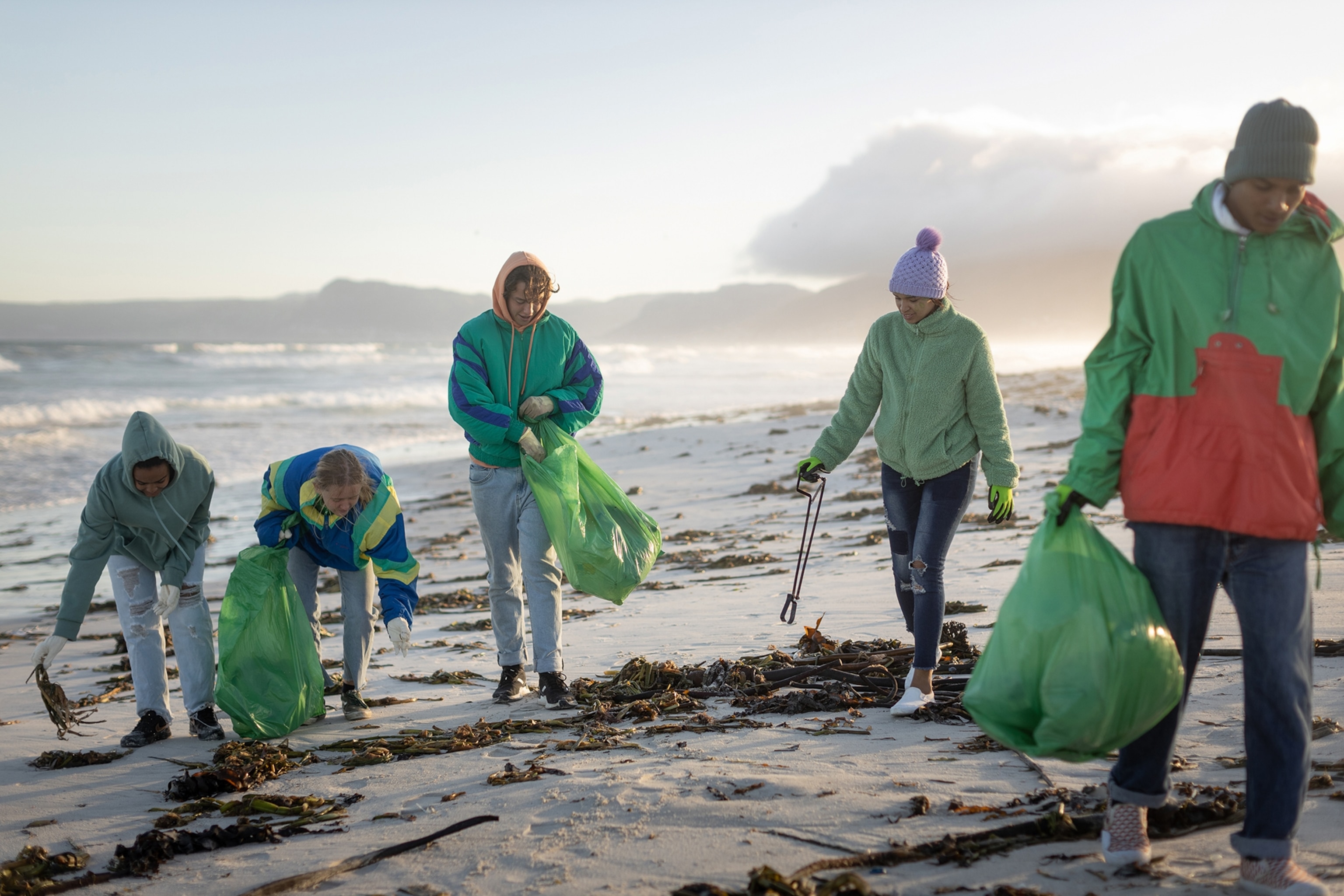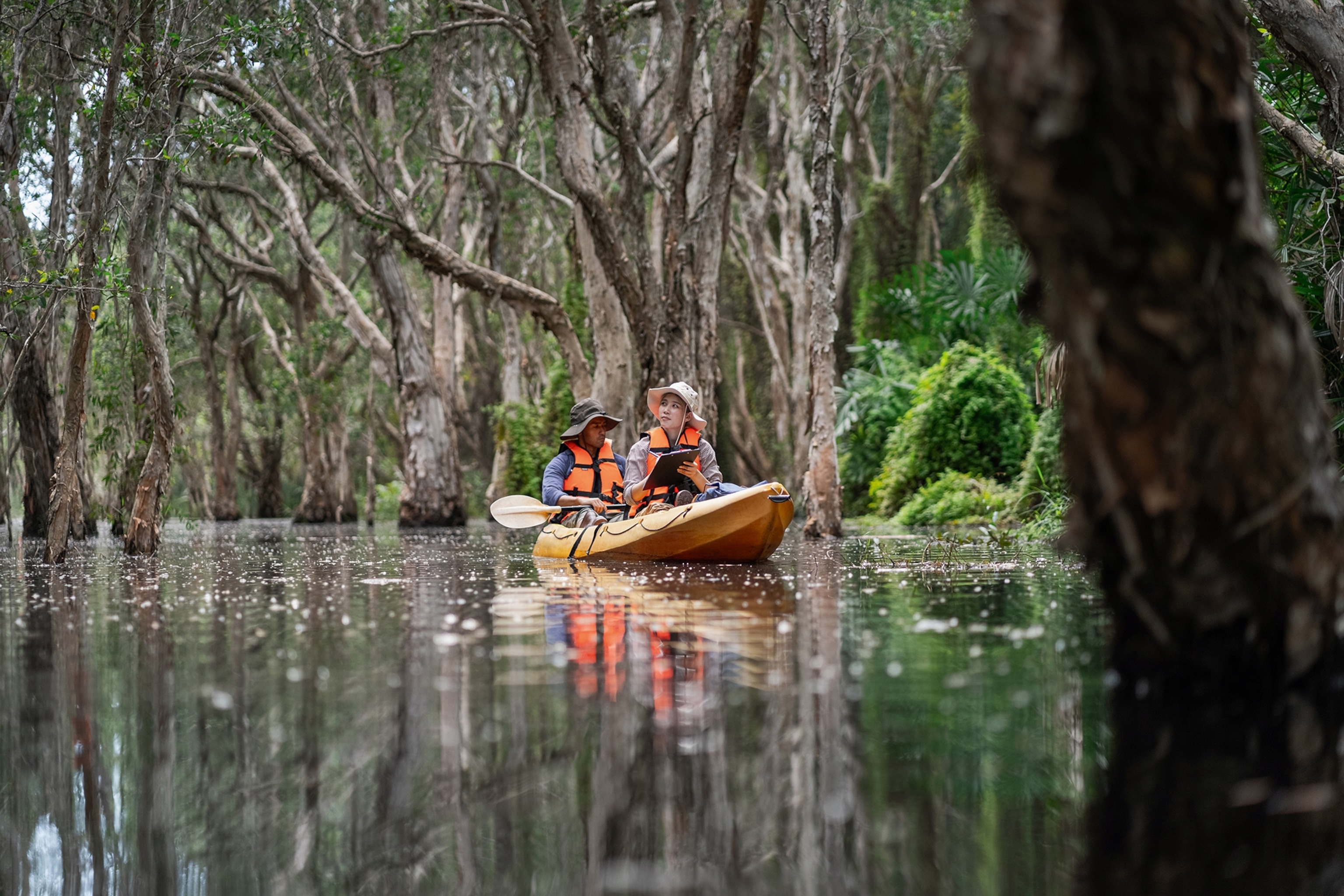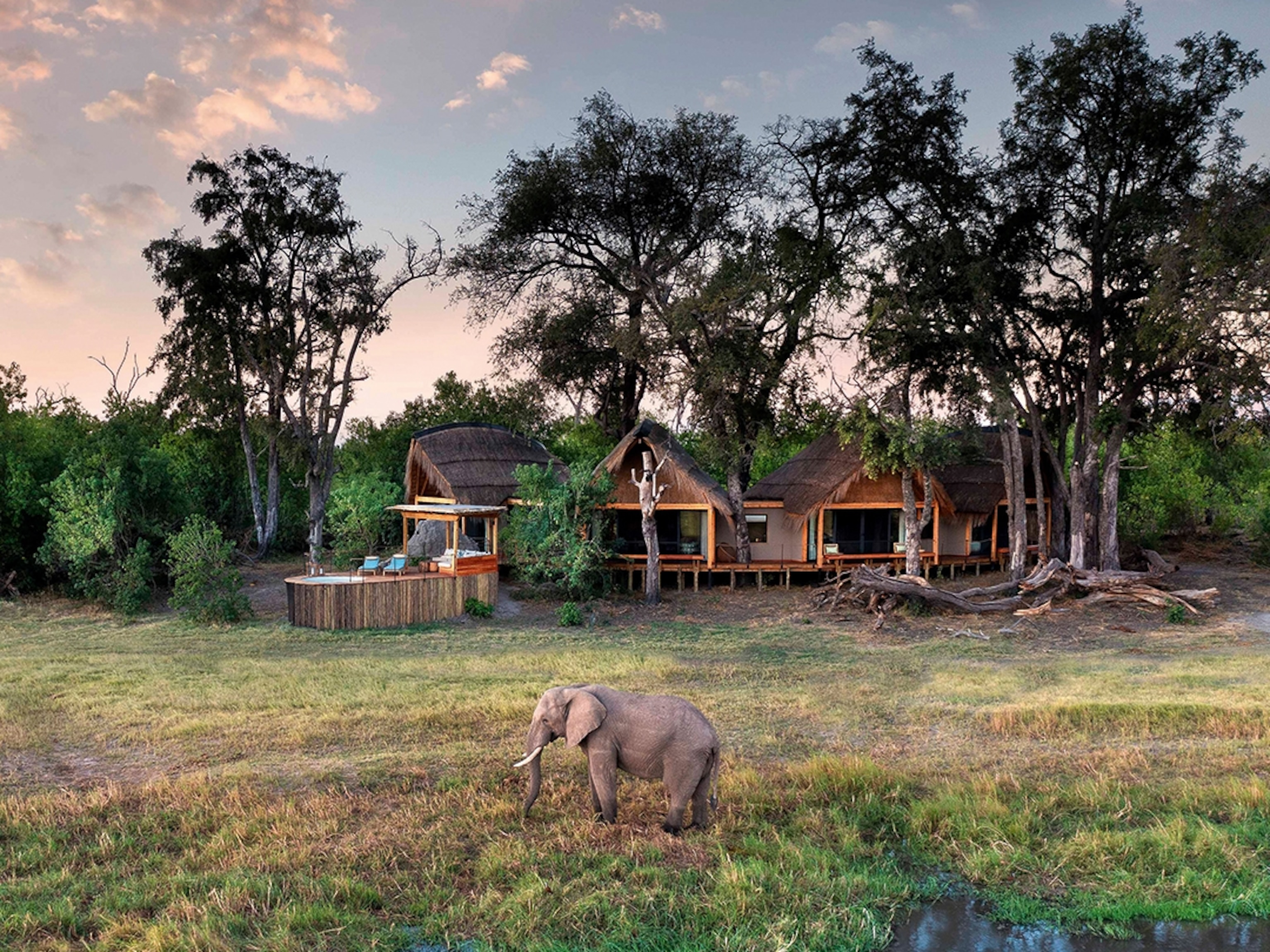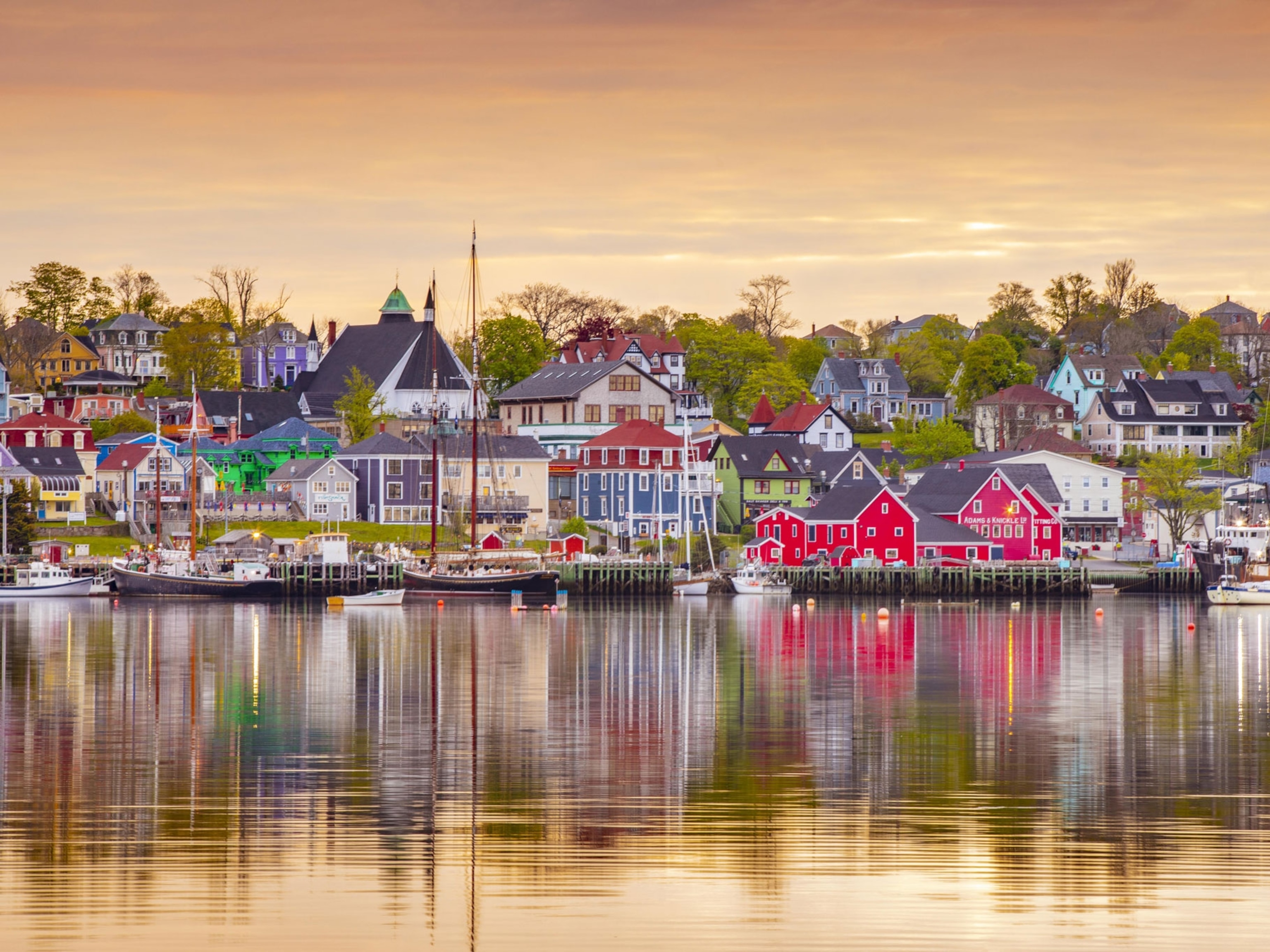
Why voluntourism still matters and how you can make a difference
It’s become a $1.56 bn industry, and profits can be very high for unscrupulous companies — so here’s how travellers can ensure their time and money truly benefits communities.
The fresh-faced school leaver, still in her teens, was as excited as she was apprehensive to be arriving in the east African village. Recruited to teach in the community school, the young Briton would be using her holiday to make, she hoped, a genuine impact. But she quickly found herself shunned by the villagers, who refused to engage with her teaching. After three distressing days, she packed up and left. Only later did it become apparent what had happened: to make space for this callow, enthusiastic and — most pertinently — free volunteer, the local teacher had been fired.
Tales such as this, relayed by an industry insider who helped handle the fallout and wanted to remain anonymous, may be mercifully rare. But, still, they serve as a reminder that, however well intentioned voluntourism may be at the point of inspiration, the reality on the ground is often much more nuanced. To subvert the popular supermarket slogan: every little doesn’t necessarily help.
Voluntourism first emerged at scale in the 1990s, partly as a reaction to the ubiquity and, to some, vacuity of mass-market package tourism. Like an abridged version of a gap year placement, the practice sees travellers augment or even supplant their getaway with some form of voluntary work in destination.
By 2019, it was a £1.25bn industry catering for an estimated 10 million volunteers a year — the majority under 25 or over 50. Today, the sector encompasses a dizzying breadth of options: volunteers can find themselves building houses in Honduras, teaching literacy to women in Morocco, protecting endangered brown bears in central Italy or delivering medical supplies to the Mongolian steppe on horseback. The sector is sustained by conduits linking needy projects or communities with ‘changemakers’, as volunteers are sometimes called. Some of these are charities, non-profits or religious groups; others, traditional businesses servicing and capitalising on a healthy demand. To what extent specific skills are needed to fulfil a placement is a bone of contention. Enthusiasm and an adventurous spirit — combined with vetting, training and support — is more than sufficient, according to some organisations. Others, such as People and Places, see it differently.
“We don’t think in terms of catering for the punters and the countries they want to visit,” says co-founder Sallie Grayson. “It’s more, ‘can we match someone to the skill gap that’s been identified’.” Established in 2005, the Kent-based not-for-profit social enterprise has placed 2,000 people over the past two decades. The modest scale is a source of pride for 68-year-old Grayson. “We make volunteers jump through huge hoops,” she says. “Our numbers yo-yo depending on the skills we see coming through.” Women make up the vast majority of its volunteers, roughly 75% — a picture mirrored across the sector.
Force for good
Done diligently and ethically, voluntourism can have a transformational impact on both recipient and volunteer, says Alex Tarrant, co-founder of not-for-profit Pod Volunteer. The Cheltenham-based social enterprise, established in 2002, focuses predominantly on conservation and animal welfare; its volunteers might find themselves caring for rescued dogs in Thailand or working in elephant conservation in Namibia. “We made an early decision that we wanted to have a relatively small number of relationships, but ones we could sustain,” says Tarrant. “We visit all the projects personally and so can picture where we’re sending volunteers.” Those who enrol are charged a fee for the placement to cover their overseas costs and the overheads of running Pod in the UK. Any surplus — something that profit-based organisations in the sector keep for themselves — is distributed via its charity to needy causes in the countries in which it operates. Pod, as is common in voluntourism, passes responsibility for international flights to the volunteers.
Exeter-based Global Vision International (GVI) is one of the bigger players in the market, having placed around 35,000 volunteers in more than 100 spots around the world over the past 25 years. One of the projects it’s proudest of is a 20-year collaboration with the Seychelles government that’s seen 1,000 participants contribute as interns, research fellows and apprentices in various marine conservation initiatives.

Longevity isn’t always a marker of success, however. For People and Places, its most effective interventions are ones where skills transference is finely gauged and efficiently delivered, enabling ties to be swiftly cut. One example involved pairing a senior educator in the UK with a relatively new school principal in Cambodia. Extensive e-mentoring was followed by a four-week visit, after which both parties agreed that the volunteer’s work was done. “How great is that?” enthuses Grayson.
Not all interactions are as mutually beneficial. In a sector where profit and philanthropy intersect, it’s perhaps not surprising that ethics can be compromised. Few have studied voluntourism more closely than Xavier Font. The 51-year-old is professor of sustainability marketing at the University of Surrey, editor-in-chief of the Journal of Sustainable Tourism and has worked as an adviser for companies such as Expedia and Tripadvisor. His frustration with parts of the sector is palpable.
If a company is devoid of ethics, voluntourism’s profit margins can be “very, very high”, he says. This is partly because overheads aren’t likely to be high, considering volunteers are usually put up in modest local accommodation, plus the fact that participants are typically happy to pay more for their trip because of how they can fund it. “While people’s willingness to pay for a [traditional] holiday tends to be low, willingness to pay for a volunteering trip is greater because you can fundraise from family and friends,” says Font. Given the inherent power imbalance between an outbound operator — that’s under no obligation to offer transparency on costs — and the often desperate partner project, unscrupulous companies can easily get away with hoarding profits rather than ensuring they percolate through to the destination.
The skills gap
Across the voluntourism ecosystem, Font believes there’s still too much focus on the needs of the volunteer rather than the recipient, leading to inappropriately or under-skilled participants. “A key rule of thumb is: if you’re not qualified to do something in the UK, don’t pretend you can do it somewhere else simply because they’re poor. If you’re not qualified as a builder in the UK, don’t pretend you can build a school in Rwanda,” he says. And as for flying halfway across the world to muck in, forget it. “The one thing developing countries have plenty of is cheap labour.”
Pippa Biddle, a New York-based writer whose book Ours to Explore: Privilege, Power and the Paradox of Voluntourism was published in 2021, recounts tales of locals in Tanzania spending all night rectifying the shoddy construction work of a team of volunteers on one of her many placements. Willing but underprepared volunteers endlessly duplicating predecessors’ input is another concern. One voluntourism organisation coordinator was reported to have overheard an exasperated teacher say: “If one more volunteer comes in and teaches the children to sing ‘head, shoulders, knees and toes’, I’m going to scream.”

Font believes social media has exacerbated the sector’s problems, leading to an influx of volunteers with messianic delusions who are more interested in the shareability of images than affecting lasting change. But it could also be argued that it has had an unintended benefit: unscrupulous organisations can no longer thrive in the shadows, hiding behind a slick website and cut-and-paste testimonials. “Today, in a fully online and reviews-driven world, it’s perfectly possible to tell the good from the bad,” says Andrew Valentine, CEO of GVI. “As a result, I think that anybody who takes the trouble to fully research the organisation they’re travelling with can be confident they’re operating in a way that’s actually ethical and for the good of the beneficiaries.”
There’s certainly a glut of advice and information out there. Would-be volunteers are urged to check reviews, speak to alumni and scrutinise an operator’s code of ethics, such as GVI’s 10 Ethical Commitments. Financial opacity is a red flag, as is anything associated with so-called ‘orphanage tourism’, a practice condemned for the grave harm it can cause, ranging from attachment disorders to human trafficking and sexual exploitation. ABTA, the Association of British Travel Agents, whose members include more than 3,900 travel brands, has long campaigned on the issue, while companies such as Responsible Travel and G Adventures provide comprehensive guidelines on any form of volunteering with vulnerable children.
Ken Budd’s poignant and illuminating 2012 memoir, The Voluntourist, chronicles his travels around the world contributing to multiple projects. Asked how he avoided the pitfalls, the US author and journalist says simply: “Homework and asking loads of questions”. He adds, “I was looking for organisations that wanted to know all about me. What were they doing to ensure I wasn’t a psychopath? I’m screening you and you should be screening me — that was my take.” Such scrutiny is paramount given the dearth of regulation. “There’s not much we have to comply with other than basic travel directives — those around package travel, for example,” says Tarrant. “There’s still very little regulation out there for companies like us. Mainly, it’s down to volunteers checking that something’s ethically run.”
The benefit equation
As for whether a meaningful contribution can really be made during these relatively brief philanthropic holidays, the answer appears to be an unequivocal ‘it depends’. The nature and duration of the project are both factors, as are the individual’s outlook and suitability. If the participant’s experience inspires them to make further contributions, or perhaps pursue a career in a field such as marine conservation or animal welfare, the benefits can spread further still.
The environmental cost should also be factored into the equation. A Briton volunteering in the Seychelles will produce around 2.5 tons of CO2 flying there and back. In holistic terms, that’s quite the deficit even before a single seabird has been counted or branch of coral assessed. Tarrant, however, argues that’s the wrong way to look at it. “When someone comes to me and tells me they’re thinking about volunteering, they’re often planning to travel anyway. If they can do something meaningful, that’s a net gain.” Extending a trip beyond the volunteering period, as many operators urge clients to do, can help to justify the emissions as well as provide a boost to the local economy.
For those for whom the equation still doesn’t add up, there are alternatives. Domestic voluntourism is one option — perhaps working on a conservation or rewilding project in a scenic corner of a traveller’s own country. E-volunteering through programmes such as the United Nations Volunteers (UNV) is also possible; skills currently sought by UNV include translators, website designers and communications specialists. Yet, for someone whose wanderlust is as powerful as their altruistic urge, sitting behind a laptop is unlikely to cut it. It also, says Budd, negates one of the key collateral benefits of voluntourism: in-person interaction. “We wrap this around volunteering and service but, for me, the micro-level stuff is the biggest benefit,” he says. “I’m talking to you, you’re talking to me, and that’s changing the way we see each other.”
Even factoring in the flaws, voluntourism is overwhelmingly a force for good, concludes Sallie Grayson. “The vast majority of volunteers want to do good and it’s up to us, the gatekeepers, to ensure that they can. Well-matched, well-placed volunteers can make a real difference, I’m still convinced of that.”
To subscribe to National Geographic Traveller (UK) magazine click here. (Available in select countries only).







